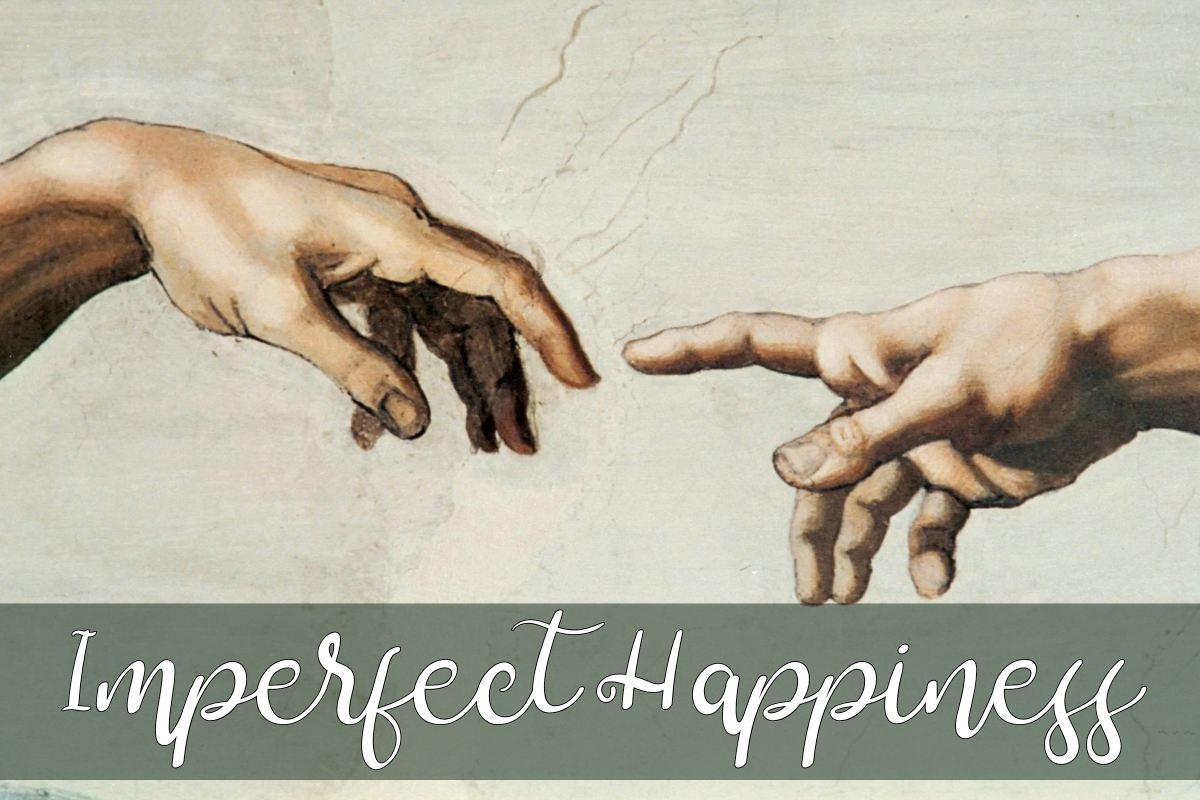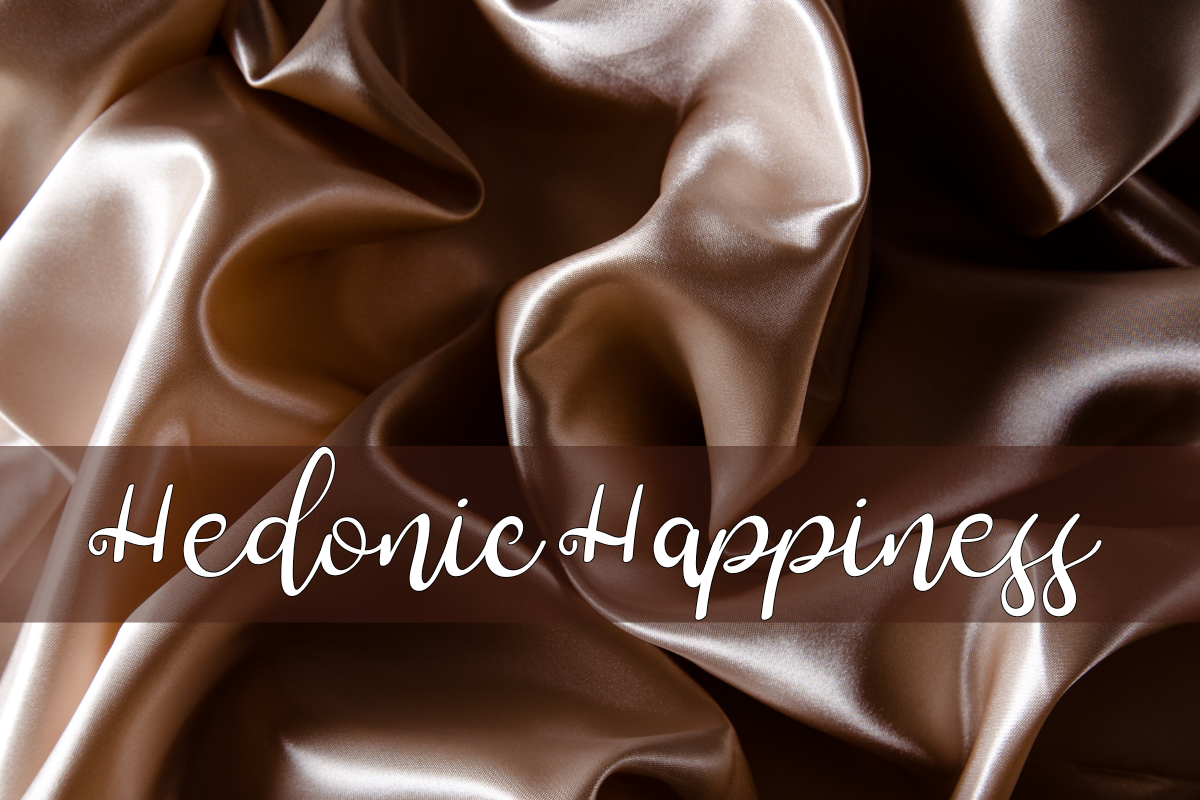Week Beginning August 25, 2024
Imperfect Happiness
Saint Thomas Aquinas builds upon Aristotle’s concept of eudaimonic happiness with his notion of imperfect happiness, which also is based on the exercise of reason and virtue and is attainable in this lifetime. Saint Thomas refers to imperfect happiness as felicitas, Latin for “fruitful,” “fortunate,” or “blessed.”
Unlike Aristotle’s view of happiness, the Thomistic philosophy of imperfect happiness relies on the theological foundation that God alone is the ultimate source of everything that is good. Therefore, only God can totally satisfy all the desires of the human soul. Imperfect happiness, derived from created goods and limited by the constraints of our worldly existence, offers only temporal contentment and partial fulfillment.
The practice of righteous works and the contemplation of the truth lead to the highest form of imperfect happiness. By living virtuously and seeking knowledge of God, we align ourselves with God’s will and cooperate with the gift of His grace, thus preparing our souls for complete union with God in the afterlife. Our pursuit of imperfect happiness detaches us from the things that cannot sate our deepest longings. This helps us to order our lives away from sinful tendencies and toward our loving communion with God.
Imperfect happiness serves as a poignant prelude to the beatific vision. It is like a gentle sunrise casting its light upon the horizon, hinting at the fuller brilliance of the day to come. Imbued with glimmers of beauty, it reveals a partial but profound reflection of the infinite perfection that awaits us. As we strive to experience the fleeting yet genuine pleasures of earthly life–our moments of love, community, achievement, and virtue–we are formed for and guided toward our perfect heavenly end.
Imperfect happiness fosters gratitude and hope, teaching us to cherish what we enjoy here while still yearning for our final delight in the hereafter. In its delicate imperfection, it reassures us that our deepest wants are realized not in this world alone, but in the eternal embrace of the divine presence. Each blessed imperfection is a sign pointing to the one absolute perfection. This week, look for God in everything, in everyone, and in every moment. Only then will you begin to find your true happiness.
Week Beginning August 18, 2024
Perfect Happiness
Saint Thomas Aquinas refers to beatitudo–Latin for “happiness,” “blessedness,” or “blissfulness”–as a state of total fulfillment of human desires and ultimate goal of our lives. This perfect form of happiness cannot be found in any finite or created goods, because their limitations can never satiate our longing for the supreme and everlasting good. He maintains that only God is infinite goodness, eternal perfection, and the source of all that is good. Therefore, only God can entirely satisfy our human hunger for happiness.
The Catechism of the Catholic Church confirms that God has placed this desire in our hearts (CCC 1725). Our wills are naturally inclined to contemplate the divine essence. This stimulates our intellectual efforts to gain knowledge and our spiritual efforts to acquire virtues. Our human capacities, however, are insufficient to attain complete beatitude through their own power in this lifetime. More than anything, we need the grace of God to transform us by restoring our human nature from sin and conforming us to the will of God. In order to see God face-to-face, dwell intimately in His presence, and truly behold His goodness, our souls must be absolutely purified.
For this reason, achieving perfect happiness through the beatific vision is reserved for the afterlife. Although this spectacular divine sight remains hidden from our mortal bodies, the earthly happiness we enjoy is a prelude to that perfect happiness in heaven. Saint Paul remarks: “At present we see indistinctly, as in a mirror, but then face to face. At present I know partially; then I shall know fully, as I am fully known” (1 Corinthians 13:12).
“The Beatitudes teach us the final end to which God calls us: the Kingdom, the vision of God, participation in the divine nature, eternal life, filiation, rest in God” (CCC 1726). Saint Jean Marie Baptiste Vianney reveals that “The happiness of man on earth, my children, is to be very good; those who are very good bless the good God, they love Him, they glorify Him, and do all their works with joy and love, because they know that we are in this world for no other end than to serve and love the good God.”
God infuses the theological virtues into our souls to facilitate our pursuit of happiness. Through faith we realize the source of our happiness, through hope we trust in the promises of the Lord, and through love we nurture our supernatural union with God. This week, consider which human virtues lead you closer to God. How can you cultivate habits here that will prepare you for the hereafter? Saint Ephraim the Syrian notes: “Thou, O Christ our Savior, hast become for me the path of life which leads to the Father. There is but one path, and it is my joy, and at the end of it is the heavenly kingdom.”
Week Beginning August 11, 2024
Eudaimonic Happiness
While hedonic happiness comes from doing what feels good, eudaimonic happiness is achieved by doing what feels right. Modern psychologists believe that balancing both of these forms of happiness is necessary for our well-being.
“Eudaimonia” derives from the Greek words eu meaning “good” or “well” and daimōn meaning “guiding spirit” or “guardian.” The term implies that we attain our human flourishing through guidance toward goodness–in other words, being well by doing good.
Dating back to the fourth-century B.C., Aristotle presents eudaimonia as the ultimate purpose of human life. Because we are rational animals, realizing our highest good by promoting something that is desirable for its own sake necessitates the exercise of reason. Eudaimonia, therefore, is attained by living in accordance with rational principles and virtues. It is a lifelong process of personal development and growth that involves continuously striving toward self-improvement and self-actualization. This form of happiness is not a fleeting emotion, but rather it manifests itself as a stable condition marked by cultivating the virtues that lead to a deep sense of fulfillment through reaching our potential. It emphasizes meaning, purpose, quality of life, moral character, and the common good.
Eudaimonia benefits both individuals and society as a whole. Individuals who aim for eudaimonic happiness foster a deep sense of satisfaction and contentment by pursuing long-term excellence over immediate gratification. Research suggests that delaying our pleasure strengthens our resilience, preparing us to cope with adversity and stress. The social dimension of eudaimonia encourages altruism, ethical behavior, and care for others. This leads to a more harmonious and productive society.
This week, reflect upon how you balance hedonic and eudaimonic happiness in your life. Are you satisfied with your allotment of time and resources? What barriers stand in the way of your happiness? Do you believe that virtuous living provides its own reward, or do you long for something even greater than that? What values are you willing to put down your life to protect?
Week Beginning August 4, 2024
Hedonic Happiness
The concept of hedonic happiness originates from a fourth-century B.C. philosophy suggesting the ultimate goal in life is to maximize pleasure. The word “hedonic” derives from the Greek word hedone meaning “pleasure.” Over time, the minimization of pain is incorporated into the subjective formula for achieving happiness through hedonism.
Our consumer-driven society encourages our pursuit of this form of happiness. We are bombarded with targeted messages aimed to stimulate our desires and alleviate our burdens. When one shiny object loses its luster, we seek another to replace it. Our mentality of bigger, better, newer, faster, and easier leaves us craving whatever comes next. We constantly long for instant gratification, for another way to recapture and elevate the fleeting emotional high that pleasure brings. We are never truly satisfied, because there is always something else to seduce us.
Nonetheless, there is scientific evidence to support the benefit of hedonic happiness. Pleasure triggers a chemical response in the body. Simply smiling or conjuring positive thoughts can make us feel better. Occasional indulgences when we are struggling can quickly boost our moods and help us through tough times. Experiencing good things and enjoying our lives can be powerful motivators. And delighting in something or someone can evoke gratitude and appreciation. Although most modern thinkers agree that hedonism alone is insufficient to deliver persistent and meaningful happiness, it can stimulate the behaviors that promote our well-being.
If not properly moderated, hedonic happiness can lead to addiction, obsession, and sinful tendencies. Pope Francis warns: “The great danger in today’s world, pervaded as it is by consumerism, is the desolation and anguish born of a complacent yet covetous heart, the feverish pursuit of frivolous pleasures, and a blunted conscience. Whenever our interior life becomes caught up in its own interests and concerns, there is no longer room for others, no place for the poor. God’s voice is no longer heard, the quiet joy of his love is no longer felt, and the desire to do good fades.”
Our one true pleasure comes from our loving union with God. When the highest purpose we seek comes from anything else, we risk our eternal happiness. Saint Ignatius of Loyola says that “It is much better to obtain only an ounce of happiness in not risking our salvation, than one hundred pounds in hazarding it.”
This week, think about what makes you happy. Note that every decision you make can lead you on a path closer to God in heaven or farther away from Him in hell. In the end, will you rest confident in your choices? Open your heart to God, and live your life without regrets. Balance your worldly enjoyment subordinate to charity for the Lord. Jesus explains to us: “Do not store up for yourselves treasures on earth, where moth and decay destroy, and thieves break in and steal. But store up treasures in heaven, where neither moth nor decay destroys, nor thieves break in and steal. For where your treasure is, there also will your heart be” (Matthew 6:19-21).




